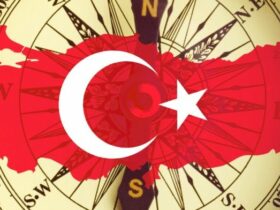- Turkey Elections
The turkish elections shows that Ergogan is a legal and legitimate president of the country. His coalition with MHP had shown the course to consolidating of new turkish nationalism. Republicans with the support of kurds didn’t manage to get enought votes for the secound round. Erdogan is once more the master of situation.
- EU summit – migration question on the edge of discussions: the beginning of the split
The strengthening position of the “Euroskeptic” movement in Europe (Italy, Austria, and the Visegrad Four) made the migration crisis the key issue at the most recent EU summit (June 28-29)
The main provisions of the final document included the abolition of refugee quotas, the rejection of the provisions of the Dublin agreements, as well as the creation of special refugee accommodation centers inside and outside the EU.
The EU summit exposed the fragility of policy rooted in “multiculturalism” and outlined the formation of two opposing camps in the EU: sovereignty and anti-sovereignty. The dispute about migration began with statements and an ultimatum from German Interior Minister Horst Seehofer (including his suggestion that Germany should not allow migrants previously registered in another EU country).
The primary actor during the talks in Brussels for the opposing side was Italy. During the initial stages, Italy, which serves as one of the main entry points for migrants into the EU along the Mediterranean, blocked most of the proposals. Italian Prime Minister Giuseppe Conte blocked the finalized document of the summit a few hours after it began.
Italy was not alone in its struggle against the aggravation of the migration situation in Europe – Rome’s wishes coincided with the consistent positions of Warsaw and Budapest against open migration. The summit clearly demonstrated the weakening positions of politicians who favor open borders policies, and the strengthening of the positions of Eurosceptics in the EU Agora.
- The Elections in Mexico and The “Trump of Latin America”
The Mexican elections will take place the 1st July; the results are expected to be in by Monday morning. The people of Mexico will choose a president who will serve for the following 6 years. The election also includes the struggle for the more than 3,400 seats up for gras at the local and state level, including 128 senatorial seats, and more than 500 members of the Chamber of Deputies.
There are 3 main issues at stake in the coming elections: Poverty (more than 40% of the population lives at or below the poverty line), corruption (Mexico is ranked 135th globally in terms of corruption, having a score of only 29 on its Corruption Perception Index), and the incredibly high crime rate (According to the Economist, the number of murders between 2011 and 2018 has increased by 25%, in 2017 more than 25 thousand Mexicans were killed in violent crimes), including the trafficking of hard drugs. The likely winner of the elections is 64 year old Andrés Manuel López Obrador, the so called “Trump of Mexico”.
According to Consulta Mitofsky, he is likely to get 38% of the vote (or higher). Obrador is a left wing populist, often compared to Bernie Sanders or Hugo Chávez. His populist rhetoric, unpredictable behavior, and inflammatory Twitter use provoke his comparison to Trump. He competed in the elections of 2006 and 2012, attempted to organize the so-called “Revolution of Cactuses”, and even held his own alternative inauguration ceremony.
Another striking similarity with Trump is Obrador’s alleged connections to Russia. This being said, Obrador opposes himself starkly to Trump’s policies on Mexico, emphasising the country is “free, independent and sovereign” and “not a colony”. The chances of victory for the three opposition candidates is next to zero. The “left turn” in Brazil and Mexico will shift the political panorama again, and could promote strengthening positions in regards to Trump’s migration policy and issues of climate change. The results of the the elections in Mexico and Brazil on July 1st and October 7th respectively will have a profound influence on the South American political situation.
- Bolton in Moscow: the key themes discussed
Trump’s National Security Advisor John Bolton met with Russian President Vladimir Putin in Moscow on June 27th, 2018. They discussed the details of the summit which will be held on July 16th in Helsinki, which is widely seen as a significant step toward improving relations between Moscow and Washington.
“I regret to say the Russian-American relations are not in the best shape,” Putin told Bolton. The Russian leader added that the problems between the two counties are largely a result of acute domestic political struggle within the United States.
The results of the talk are as follows:
- Putin and Bolton have agreed to a meeting between Vladimir Putin and American President Donald Trump (it will take place the 17th of July in Helsinki)
- The US will continue to refrain from recognizing Crimea as a part of Russia, and will not remove sanctions. This comes in light of recent comments made by Donald Trump in regards to Crimea. According to Buzzfeed, Trump told G7 leaders that he considers Crimea to be part of Russia, but Bolton’s statements emphasized that Washington’s position on Crimea has not changed.
- It is possible that Putin and Trump will discuss the alleged Russian interference in the American elections. According to Putin’s political aid Ushakov, the initiative to discuss this matter came from the Russian side.
- American diplomats will not be returned to American consulates after the recent scandal (the mutual expulsion of diplomats and the reduction of diplomatic missions), or at least this particular question will not be included in the official agenda of the talk.
















Leave a Reply